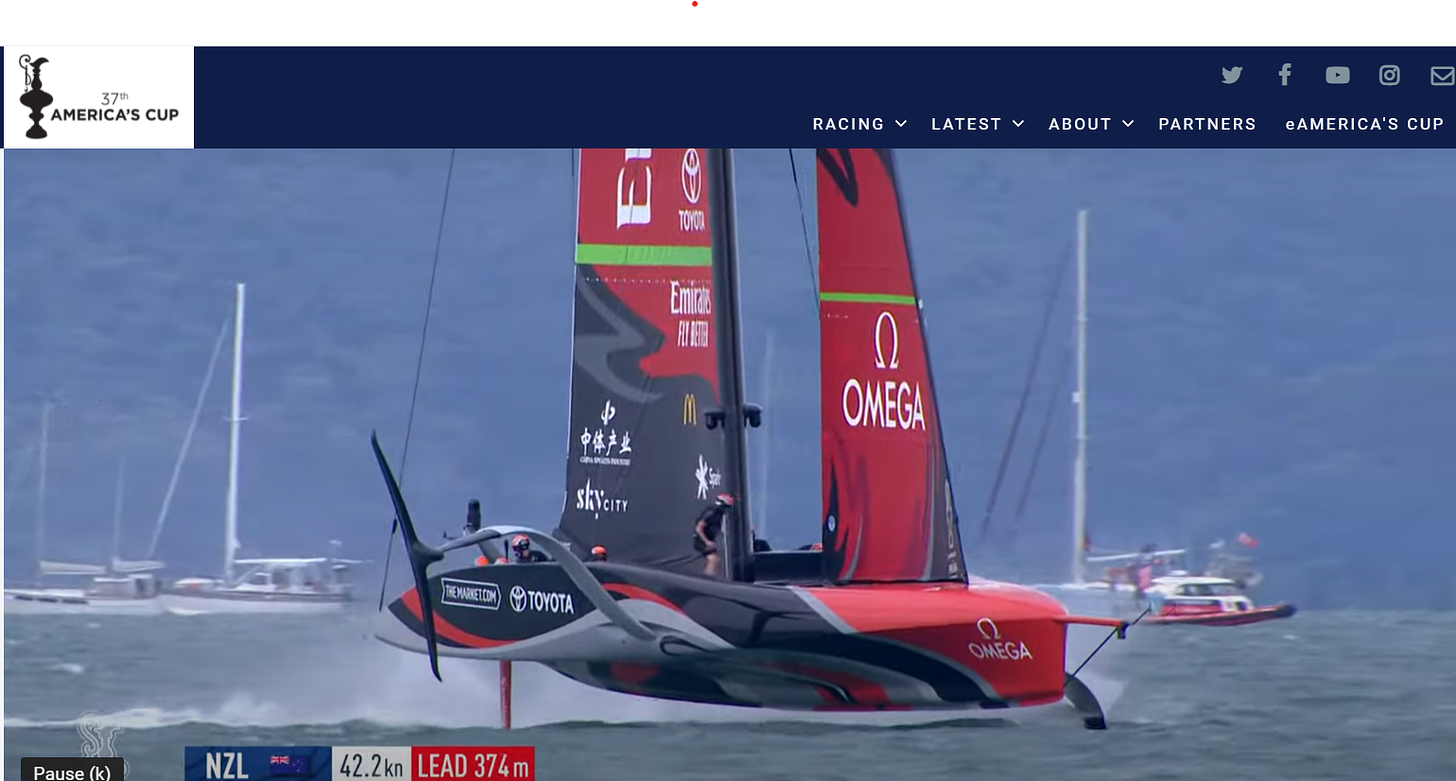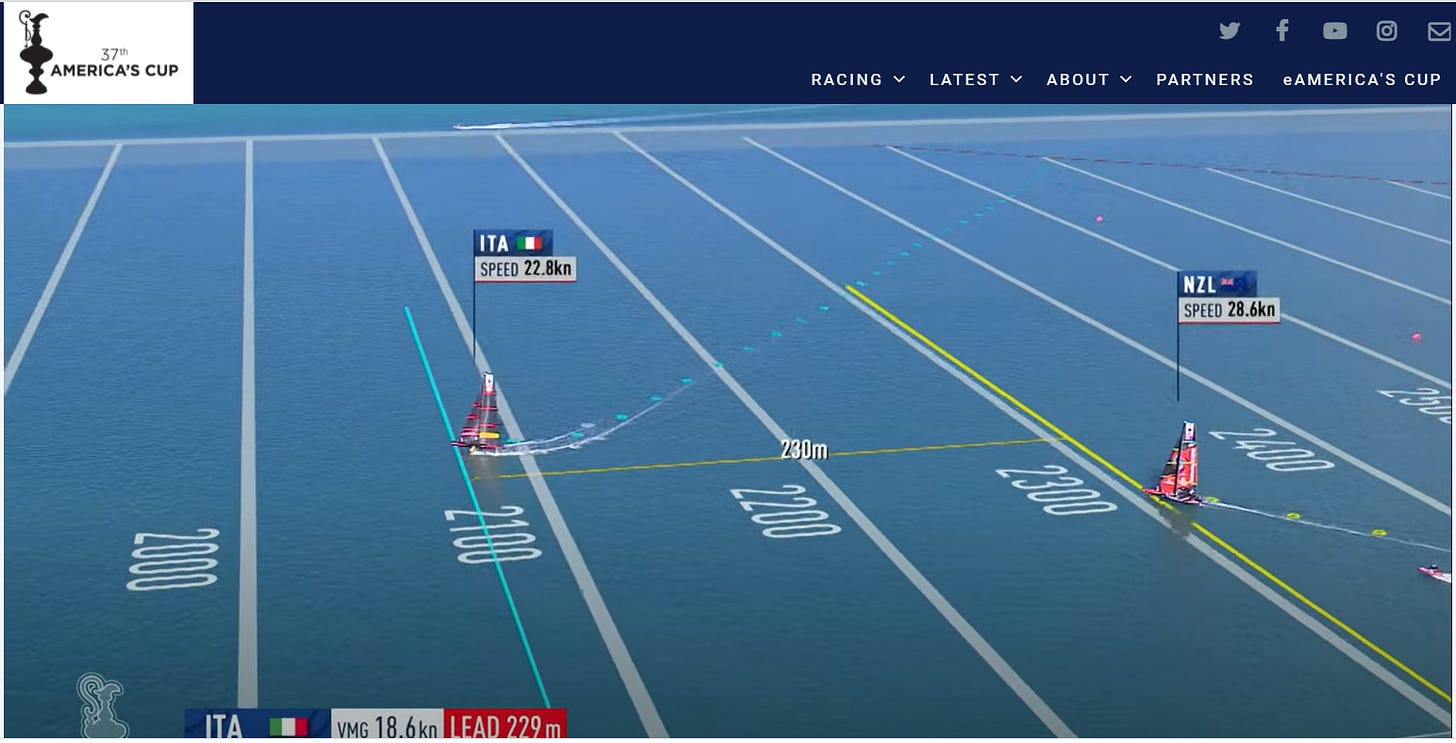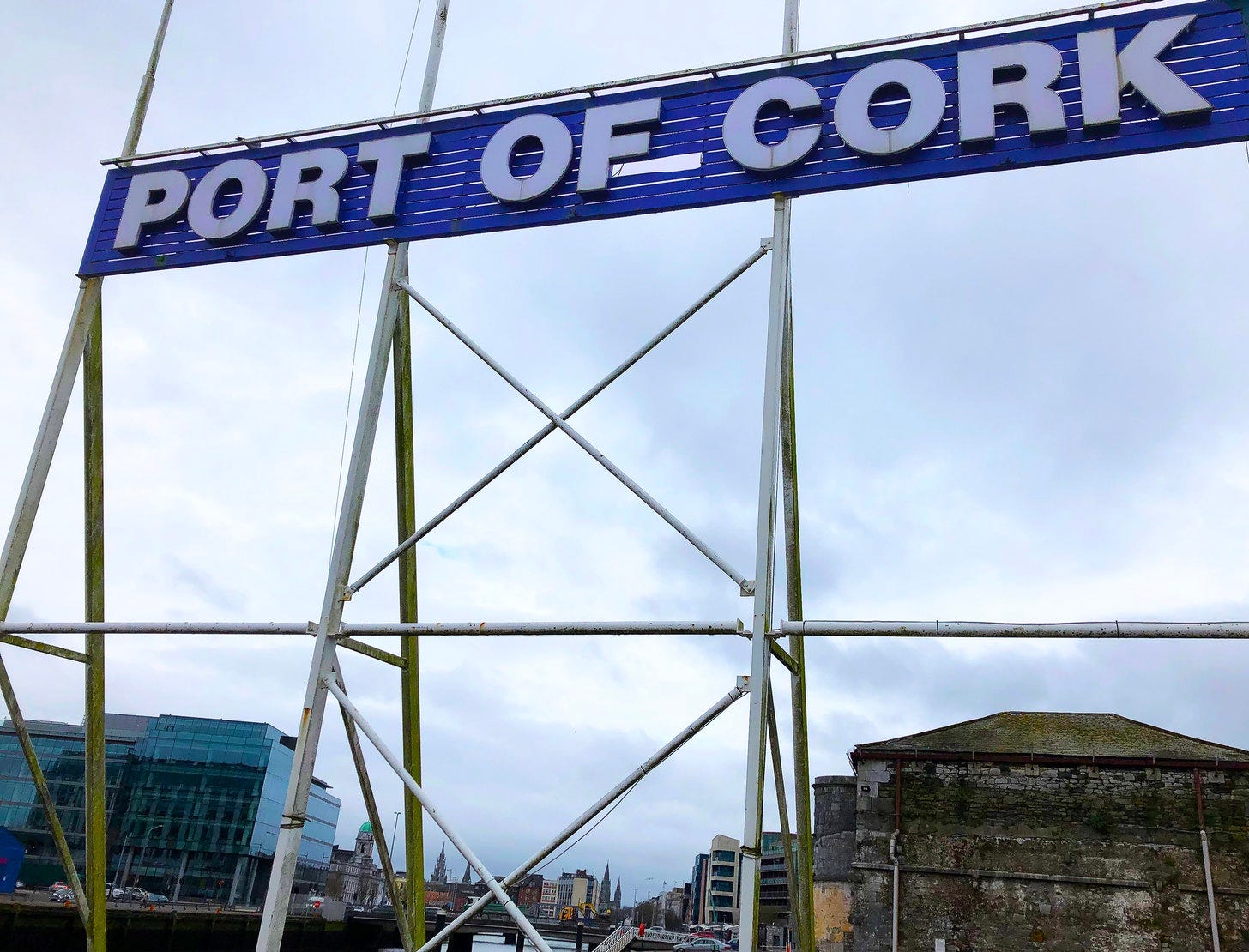Everything you wanted to know about the America's Cup including Cork's chances of hosting it
The yacht race is talk of the town this week in Cork. A crunch cabinet decision is expected tomorrow.
Over the past week it’s been building to a crescendo: Cork is on the verge of securing the America’s Cup for 2024. But what does the race entail, how much will it cost, what infrastructure would be put in place, and what are Cork’s chances of hosting it? Tonight’s explainer will hopefully go some ways to answering your questions.
What is the America’s Cup?
It’s one of the oldest sports competitions still in existence having first started in 1851, and it attracts big money and high-profile sponsors. Each team coughed up $2 million to enter the 36th edition of the race which was held this year in Auckland, New Zealand.
You’ll often hear the America’s Cup compared to Formula 1 (and quite often by people who know very little about either sport). Each competing team in the America’s Cup is huge, up to 200 strong.
The race attracts Olympic athletes as well as big egos who spend big to win. The event is held every three to four years. The last time it was held in Europe, Valencia staged the race in 2007 and again in 2010. The Spanish city was considered the other main frontrunner for the 2024 event, along with Cork, but Valencia pulled out over the weekend leaving Cork in pole position.
What are Cork’s chances of hosting the America’s Cup?
"I think it's no secret that Cork are really, really strongly positioned," Maurice O’Connell told me over the phone today from Dublin. "The reality is that this will come down to the highest level of government."
"The decision now lies with government, and I think it's in our hands."
Maurice, originally from Rochestown, has been sailing since the age of five. He’s also a partner at North Sails in Ireland and a regular commenter for RTÉ on all things sailing.
O'Connell has been keeping a close eye on proceedings since a delegation from the evaluation team visited the second city this past summer. "That went really well," O'Connell said but, as he acknowledged, “there are an awful lot of moving parts” before the formal decision is announced on Friday, September 17 in New Zealand.
(The evaluation committee acting on behalf of Team New Zealand was led by Cork man Paul Hosford, CEO of London-based Origin Sports, who, The Irish Times reported is known to Simon Coveney. The Fine Gael TD has been the most prominent senior politician to champion Cork’s bid to host the cup).
Understandably, for someone who’s job and passion is sailing, Maurice is “massively excited” about the possibility of the event being held in Cork.
"Last night I was talking to a friend of mine in Norway and he was saying, 'If the America's Cup is going to be in Ireland this is going to be brilliant'."
O'Connell's friend told him he was planning on coming with his family and friends to Ireland for two weeks if the race went ahead.
"It's a big deal."
What’s the race like?
As per Maurice, it’s best to think of the Cup as a series of short races, 100 meter sprints even. They would all happen in the harbour, so it’s not an event that would be way out at sea, such as the Fastnet Race.
"The race course would be directly outside Cork Harbour, there's lots of vantage points around Roberts Head, Weaver's Point and Roche's Point where people can watch the sailing. People can get out in powerboats and motor boats and all sorts of boats to watch the sailing."
The format of the race is that first the challengers will race off over a period of weeks: the races are short, about 2 kilometres in length, and on any given day there would be multiple races.
The best yachts can close in on speeds of more than 50 knots (close to 100 kilometres per hour) when they’re gliding across the water.
Speaking about the multi-million dollar yachts, Maurice said they’re "unbelievably technically sophisticated machines that can kill people if you get them wrong, much like a Formula 1 race car."
Eventually, only one challenger is left standing and it’s that yacht, or team, that will challenge the holders -Team New Zealand who are backed by Emirates - for the 37th America’s Cup in 2024. Again, it’s a series of races that will be staged over a period of around six weeks.
Maurice told me that if Cork is successful, crews would relocate to live in Ireland for up to two years. That would entail setting up design offices, bringing over naval architects, engineers, fitness professionals and experts in aerodynamics and hydrogen.
O'Connell said that Cork's geography - having one of the deepest natural harbours in the world as well as a "natural amphitheatre so that people can watch" - has been integral to its bid.
Involving the public in the drama and the spectacle and intrigue, O'Connell says, is a key part in any successful city that has hosted the America's Cup.
Now, let’s talk about cost?
The government commissioned EY, the consultancy company formerly known as Ernest&Young, to do a cost-benefit analysis. The report was not published, but unsurprisingly top-line figures were. If they are to be believed there’s an expected return of between €400-€500 million from staging the race in Cork. The government would commit €150 million, with €100 million in infrastructure and €50 million to run the race.
Councillor Lorna Bogue told me that we should take this financial analysis with a pinch of salt "because when you're dealing with multipliers of how much money is going to be generated in an economy, that's a very difficult thing to measure."
As this report in The NZ Herald outlines, the city of Auckland did not make its investment back on this year’s America’s Cup investment: the pandemic was a major factor, but also “overly high public investment generated ‘significant deficit’ for Auckland and New Zealand.”
Auckland’s deficit was $146 million (around€90 million) - with a financial return of 72 cents back for every dollar put in.
Paula Cogan, president of Cork Chamber is bullish, however. Paula told me that much of the €100 million infrastructure development was already planned at city, county and national level - such as the electrification of the rail line to Cobh.
“The difference would be it would have to frontloaded, effectively be delivered within the next two years versus some of it being expected to be delivered in the next 15 years.”
A press release from Cork Chamber also highlighted how there were 2.5 million spectator visits to Valencia when they staged the event in 2007. The event does bring with it global media as well as a global media audience.
Paula told me a line that’s been trotted out a fair bit, that the America’s Cup is the third biggest sporting event after the Olympics and the football World Cup.
“Let’s just say Cork is not going to get the opportunity to host the Olympics or the World Cup, but to think we could actually host the third largest sporting event is so exciting, and a once-in-a-lifetime opportunity.”
The potential of the harbour, and the city
Paula thinks that the America’s Cup would be a “game changer” for Cork Harbour, making it accessible for everybody.
“At the moment it’s quite hard for people to get out on the water,” Paula says, noting that the infrastructure such as pontoons and marinas are just not there for more people to enjoy the harbour.
“But after the America’s Cup all that would be in place.”
One other project that has been touted, but which details are still thin on the ground about, is the construction of a hydrogen plant in Crosshaven which would produce fuel for at least some of of boats supporting the racing yachts.
Cllr. Bogue told me she would definitely like to know more about the hydrogen plant and if, after the race, the facility could then produce hydrogen for the bus fleet in Cork (Cork doesn't currently operate hydrogen fuel cell buses, but there are plans to procure hydrogen powered busses in Dublin). Separately, there is work going on at Aghada in Cork Harbour to develop Ireland’s first commercial scale green hydrogen production facility.
While these are all benefits for the city, Cllr. Bogue said it was a "bit odd that it takes a load of people showing up in yachts to get this work done."
Equally, Mick Barry, Solidarity TD for Cork North-Central sounded a note of caution about an influx of wealthy visitors driving up prices in the rental market.
The Simon Coveney connection
Undoubtedly, Simon Coveney has been one of the key political drivers in Cork’s bid to host the America’s Cup. Later this week he faces a motion of no-confidence which will be tabled by the opposition as a result of his involvement in the appointment of Katherine Zappone to a special envoy position at the United Nations, which he also backed.
I asked Paula Cogan if, that given Coveney’s close connection to the Cork bid, and the upcoming vote of no-confidence, was there a risk it could influence the cabinet decision?
“Like anything in life it’s not down to one person, while it may not have been very evident to the public but there’s been lots of commitment from various different organisations in the last year,” Paula said.
One organisation though that’s been left out of the loop is the city’s councillors, Lorna Bogue said. While the funding for the America’s Cup is coming from central government, Bogue said the city’s run has come as “a bit of a surprise”.
"At the end of the day, people in the city and around the harbour are going to have this on their doorstep and you need to bring people along with you.”
“It all comes as a bit of a surprise."
And it’s likely there’s more surprises in store as the week plays out. If Cork is selected to host the 37th America’s Cup in 2024, it’s a headline few would have predicted even a short few months ago.






